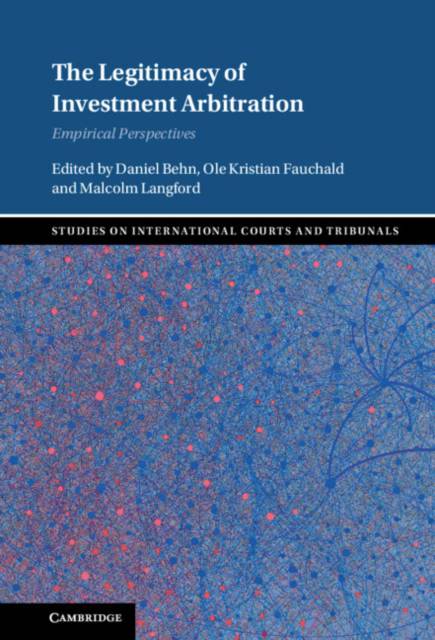
Bedankt voor het vertrouwen het afgelopen jaar! Om jou te bedanken bieden we GRATIS verzending (in België) aan op alles gedurende de hele maand januari.
- Afhalen na 1 uur in een winkel met voorraad
- In januari gratis thuislevering in België
- Ruim aanbod met 7 miljoen producten
Bedankt voor het vertrouwen het afgelopen jaar! Om jou te bedanken bieden we GRATIS verzending (in België) aan op alles gedurende de hele maand januari.
- Afhalen na 1 uur in een winkel met voorraad
- In januari gratis thuislevering in België
- Ruim aanbod met 7 miljoen producten
Zoeken
The Legitimacy of Investment Arbitration
Empirical Perspectives
€ 213,45
+ 426 punten
Omschrijving
International investment arbitration remains one of the most controversial areas of globalisation and international law. This book provides a fresh contribution to the debate by adopting a thoroughly empirical approach. Based on new datasets and a range of quantitative, qualitative and computational methods, the contributors interrogate claims and counter-claims about the regime's legitimacy. The result is a nuanced picture about many of the critiques lodged against the regime, whether they be bias in arbitral decision-making, close relationships between law firms and arbitrators, absence of arbitral diversity, and excessive compensation. The book comes at a time when several national and international initiatives are under way to reform international investment arbitration. The authors discuss and analyse how the regime can be reformed and ow a process of legitimation might occur.
Specificaties
Betrokkenen
- Uitgeverij:
Inhoud
- Aantal bladzijden:
- 582
- Taal:
- Engels
- Reeks:
Eigenschappen
- Productcode (EAN):
- 9781108837583
- Verschijningsdatum:
- 13/01/2022
- Uitvoering:
- Hardcover
- Formaat:
- Genaaid
- Afmetingen:
- 152 mm x 229 mm
- Gewicht:
- 938 g

Alleen bij Standaard Boekhandel
+ 426 punten op je klantenkaart van Standaard Boekhandel
Beoordelingen
We publiceren alleen reviews die voldoen aan de voorwaarden voor reviews. Bekijk onze voorwaarden voor reviews.








